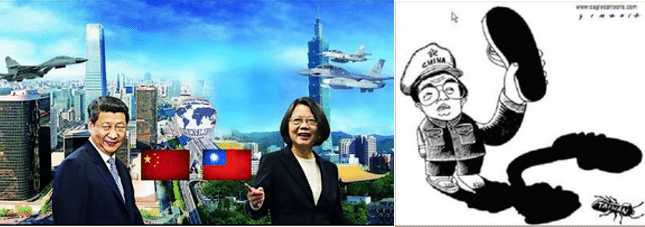China has moved to tame [the legislative council], one of Hong Kong’s few remaining avenues for dissent and democratic ideals, as it effectively expelled four elected opposition lawmakers from office, prompting vows to resign from their allies. …
The council … stood as a symbol of the ‘one country, two systems’ legal framework that was designed to preserve democratic freedoms in the former British colony after it returned to Chinese rule in 1997. … It even called for eventual universal suffrage, a major goal of pro-democracy supporters.
(The New York Times, November 11, 2020)
In fact, all pro-democracy lawmakers resigned en masse in solidarity. Except that this will have no greater political impact than fans filing out of their baseball stadium after watching a visiting team shut out the home team.
Remarkably, reporters and commentators alike are accusing China of seizing Western struggles to fight Covid-19 to make this power grab. The problem is that China not only telegraphed its intent but took concrete steps to do this years ago.
Indeed, here is what I wrote over three years ago in “China: Where Hong Kong Is Concerned Britain Is Now Adrift at Sea,” July 1, 2017:
_________
Today is the 20th anniversary of ‘the Handover’ (as the British say) or ‘the Return’ (as the Chinese say) of sovereign authority over Hong Kong from Britain to China. To mark the occasion, China is going out of its way to disabuse Britain of any notion that it retains any authority at all. …
 It is clearly daring Britain (and the United States) to interfere in its domestic affairs with Hong Kong. It is doing so by stamping out all embers of democracy in Hong Kong to ensure that it looks more like Beijing than London. But, as remarkable as this might seem, I think China is right to assert its exclusive and unconditional sovereignty in this respect:
It is clearly daring Britain (and the United States) to interfere in its domestic affairs with Hong Kong. It is doing so by stamping out all embers of democracy in Hong Kong to ensure that it looks more like Beijing than London. But, as remarkable as this might seem, I think China is right to assert its exclusive and unconditional sovereignty in this respect:
As one who lived under British colonialism, I appreciate why its colonial rule is preferable to China’s communist rule. My national/racial pride is such, however, that I have little sympathy for Chinese residents in Hong Kong who consented to be governed by British colonialists, but are refusing to be governed by Chinese nationalists. Besides, the issue here is not between colonialism and communism; it’s between national unity and regional secession.
Frankly, solidarity with Hong Kongers who want independence from China is tantamount to solidarity with Texans or Californians who want independence from the United States. Therefore, one can hardly blame Chinese President Xi Jinping for acting pursuant to the same principle that compelled US President Abraham Lincoln to preserve the Union … by any means necessary.
(“China Vows to Crush Hong Kong-Led Confederacy; and It Should,” The iPINIONS Journal, November 15, 2016)
Britain is now left with only a few ‘Overseas Territories,’ which dot the globe with as much significance as fleas on the butt of an elephant. This is why it’s fair to say that the sun has finally set on the British Empire.
Good riddance, Britannia!
________
Frankly, it would make more sense if reporters and commentators were wondering why China has not used this pandemic as cover to take more concrete steps to reclaim Taiwan. But here too, I could have disabused them of that by referring them to what I’ve written in this regard in commentaries like “China v. Taiwan (and the United States): Nuclear Friction in the Taiwan Strait,” July 19, 2005, “China Tightening Noose Around Taiwan’s ‘Independence’,” July 26, 2018, and “China Lays (Political) Claim to Taiwan,” January 3, 2019.
Suffice it to know that China not asserting dominion over Taiwan the way it is over Hong Kong has nothing to do with concerns about Western reaction. Instead, it has everything to do with fully appreciating that, while it could smash Hong Kong like a bug, it would have its own version of the deadly war in Vietnam (or the never-ending war in Afghanistan) if it tried the same with Taiwan.
It’s really that simple folks.
That said, if you’re a relatively new reader, you’d be forgiven for thinking that I’m just one of a shocking number of Westerners (most notably British politicians, ironically enough) – who the Chinese have bribed to propagate their imperial propaganda. But nothing could be further from the truth. Not least because the same antipathy to British colonialism that informs my take on Hong Kong also informs my take on Chinese imperialism.
Indeed, I can disabuse you of any suspicion by referring you to what I’ve written in this regard in commentaries like “China Buying Political Dominion over the Caribbean,” February 22, 2005, “China Putting Squeeze on The Bahamas. Your Country Could Be Next,” October 22, 2010, and “China Using Loans to ‘Colonize’ Developing World.” August 20, 2018.
Trust me, I could go on, but I think you get the point.
Related commentaries:
China reclaims Hong Kong… China lays claim to Taiwan… China using loans…

